From Policy to the Real World: An Undergraduates Experience with PIPS
By Jahnavi Prabhala ’22
Right before I joined The Project on International Peace and Security (PIPS), an undergraduate think tank based at W&M’s Global Research Institute, I found myself approaching the point in my college career where my academics were becoming a disjunctive slew of classes. While I was a STEM student who was largely interested in health and medicine, I continued to wonder about the roots of complex international issues that shaped our world. I searched for answers to my bifurcated questions by taking Economics, Government, and Biology classes. As one might expect, my search for answers left me with even more questions about our world. While I loved learning about these subjects through my classes, I felt a growing sense of impatience as I struggled to find the linking thread between my interests in biology and international policy. I had an itch to learn and critically think about certain subjects beyond my classes or personal research; I just did not know how or where to start.
PIPS gave me the unique opportunity to make the leap from simply learning about biological processes and economics/public policy theories in my classes, to researching and critically thinking about the real-world intersections and applications between international security and biotechnology.
I still remember the days leading up to my first official PIPS meeting. I felt as if I was thrown into a whole new world.
I first met with my PIPS research fellow, Caroline, who shared my unique love for biology and international relations (IR). Within the first few minutes of meeting, she passionately explained how we would be examining the existing ethical gap in biotechnology that China and Russia could exploit to gain a military, commercial, and global health policy advantage over the United States. As she was talking, I could not help but briefly phase out. I thought to myself:
Biology. ✓
International policy. ✓
Real-world, current-day issues. ✓
Intellectual challenge. ✓
Wow. PIPS seemed to encapsulate everything that I sought out in order to expand the horizons of my education. Still, as she continued to explain the project and my responsibilities as a PIPS intern, I felt a cloud of anxiety eclipse some of my curiosity and excitement. While I had joined the PIPS research team to challenge myself beyond learning through my classes and the news, I could instantly sense that this experience would be a whole different challenge.
I nervously attended my first PIPS o’ Clock, which is an unofficial meeting time where all the PIPS interns and fellows gather to discuss, brainstorm, and receive feedback on the fellows’ projects. Within the first couple of minutes, I was surrounded by some of the most intellectual foreign affairs conversations and ideas by students that I had ever witnessed. I was silent for a majority of this meeting—not just out of intimidation and confusion, but out of awe from my peers’ ideas. I knew that I had much to learn. At first, I felt too inexperienced or underqualified to ask simple questions or give comments, given that I was just a STEM kid with a limited background in IR research. Maybe I was not ready for this type of research. We were dealing with real, complex issues that required a multidimensional research approach. In researching issues like asymmetric global bioethics or disinformation, we were maneuvering through international security questions that oftentimes lead to more questions or did not have concrete answers.
Towards the end of the meeting, one of the PIPS research fellows asked what the interns thought, genuinely inviting both questions and comments. There was an awkward silence at first. Naturally, I felt slightly uncomfortable in that brief moment of silence. I had so many questions in my head but did not know if I should ask before doing my own individual research. While I was apprehensive at first, I broke the silence with a question. There was more silence. Reading the room, I realized that these brief moments of silence were not filled with awkwardness but were rather filled with thoughtfulness. An engaging back and forth discussion finally broke the silence, interspersed with corny PIPS jokes and even more pauses for us to think about newly mentioned ideas.
In these moments, I had taken my first step to entering the intellectually challenging, yet warm and welcoming community that integrally makes PIPS, PIPS. From day one, the entire PIPS team (Professor Smith, Professor Oakes, PIPS fellows, PIPS interns, and PIPS alumni) encouraged every PIPS member to build their own approach when contributing and engaging with PIPS—whether it be to ask simple questions to understand basic concepts, to make controversial but well-thought-out comments that confronted fellows’ policy recommendations, or to even take a stab at our playful PIPS banter. What consistently enveloped every person’s contribution was their own way of being a skeptic and a critical thinker. Ultimately, it did not matter that I had little to no prior experience in working on these complex international security topics or with research in general. It did matter, however, that I harnessed my feelings of being uncomfortable, and actively evolved my approach to engage with the PIPS team and our niche research.
It was ultimately the smaller PIPS moments that helped me handle my intellectual growing pains—the moments of engaging in the light-hearted, yet thoughtful discourse in Tyler Hall Room 131; slugging through the snowstorm to meet at someone’s house and practice the fellows’ presentations; and figuring out how to make a fun PIPS Zoom dance as we worked through the uncertain circumstances that changed the last months of our Spring 2020 PIPS operations. These were the experiences that underscored my appreciation for this team and our research, in addition to fueling my excitement for every Friday 1:30 to 4:30 PM, our PIPS meeting time.
I truly believe that every person has a unique experience and relationship with research and academia. My research experience with PIPS started with a sense of unfamiliarity but unfolded into a period of personal growth. Prior to PIPS, I merely connected the periphery of my academic knowledge to current-day applications. While I was intimidated at first, PIPS gave me the opportunity to further explore the crux of the real-world intersections between biology and international policy, rather than just learning about them as isolated and unrelated subjects. In addition to helping me discover my own passion for global health security, the PIPS community helped me identify my own STEM-tinted lens when considering the nuances of international security issues.
PIPS essentially threw me into a whole new world of thinking. This experience left me with the ability to ask tougher, more nuanced questions and to create policy recommendations that seek to address complex real-world issues. Overall, while I may never feel truly ready to face these issues, my search to learn more about our world through research will continue—even if that leads to more challenging and sometimes unanswered questions.

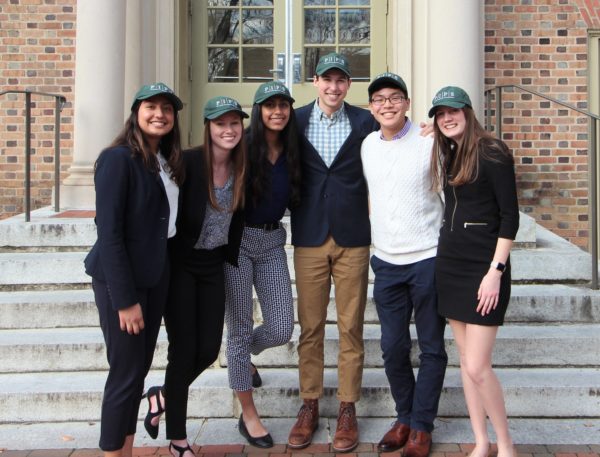
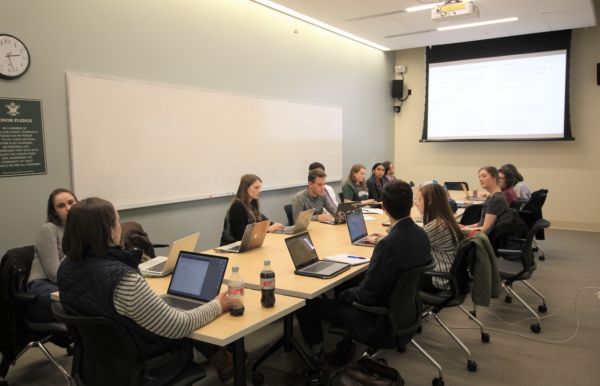
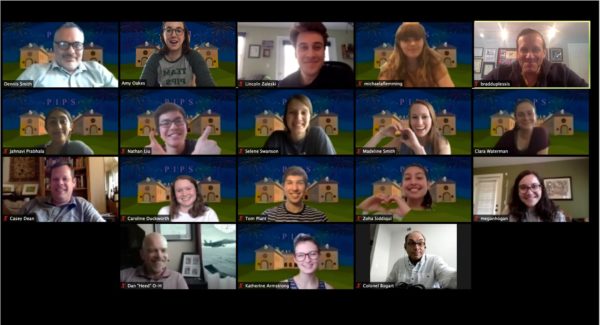
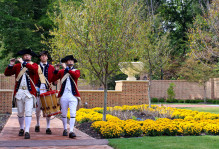
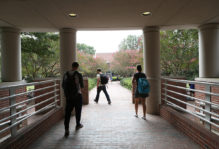
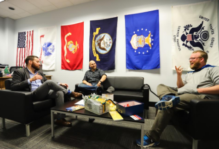
No comments.
Comments are currently closed. Comments are closed on all posts older than one year, and for those in our archive.